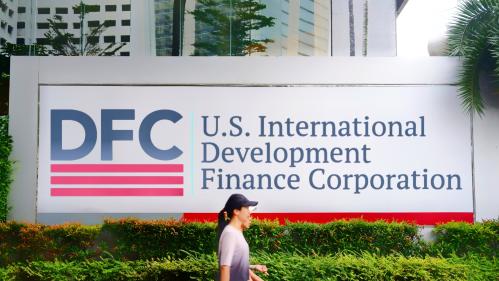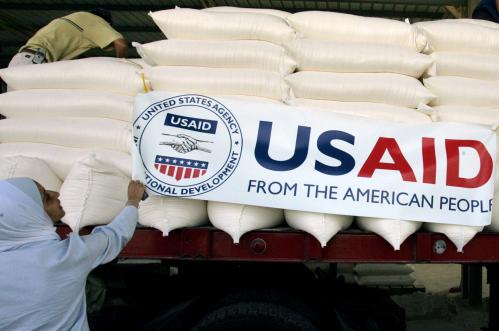Editor’s summary: In a recent op-ed, Lael Brainard and Noam Unger explore how the current global food crisis showcases America’s weakened foreign aid capacity and argue that the U.S. must modernize and reform its foreign aid system in order to lead effectively and offer real solutions to global poverty. The article was published in a recent Los Angeles Times online forum on food diplomacy.
In the face of what may be the biggest setback to food security and thereby to global development in recent history, America’s weak and fragmented foreign assistance infrastructure is not up to the task of responding effectively. With food security — a foundational component of development — taking a major hit in low-income countries worldwide, the U.S. should be at the forefront of the response effort in terms of short-term relief and longer-term investments in agricultural productivity.
The response must be broad in scope, helping to address issues stemming from the impact of bio-fuel and land-use policies to climate change to the rising middle class in Asia that is demanding higher-input foods. On global development matters the U.S. has historically shown leadership in confronting problems, but we are unprepared to meet the new challenges posed by the 21st century. In particular, with 50 separate government units sharing responsibility for aid planning and delivery in the executive branch, and with a morass of 50 objectives ranging from narcotics eradication to biodiversity preservation, our aid system suffers from untenable levels of incoherence and fragmentation that undercut our efforts to lead abroad.
To address the global food crisis strategically and systemically requires a long-term perspective in conjunction with appropriate levels of professional technical capacity, but the U.S. government lacks an agency with the clout to make such investments. The 2006 bipartisan Task Force on Transforming Foreign Assistance in the 21st Century, a study led by the Brookings Institution, found that America’s aspirations and aid dollars will continue to exceed our impact on the ground unless and until we refocus our foreign assistance strategy, modernize our aid infrastructure, and build our operational civilian capabilities.
Large-scale humanitarian efforts and the demands of post-conflict reconstruction in Iraq and Afghanistan have led to a faster rate of expansion of foreign aid dollars in the last seven years than at any point since the Cold War. But instead of truly modernizing our Cold War era aid apparatus, the Bush Administration has responded to each new global challenge by creating new ad hoc institutional arrangements alongside the old ones, such as the President’s Emergency Plan for AIDS Relief, the President’s Malaria Initiative, the Millennium Challenge Corporation, and a new foreign assistance office at the State Department. Meanwhile, by default rather than design, our over-burdened Defense Department is taking on a growing role, now accounting for one-fifth of U.S. Official Development Assistance.
The incoming administration that will inherit the full political and social impacts of the present food crisis should take a different approach. In creating a Department of Global Development our government could fundamentally overhaul our outdated system. Elevating development to independent Cabinet-level status alongside diplomacy and defense would provide this critical mission with the unified voice of a high-level official who would have the ownership and accountability to devise and implement coherent strategies. This would not only boost U.S. standing in the world in terms of its symbolic value, but it would also be the best way to insure against the subordination of long-term investments in democratization, development and poverty alleviation to short-term political objectives.
As favorable opinions of the U.S. have suffered in recent years — an issue reflected in commentary on these pages — we must refashion the image we present to the world by retooling the way we seek to influence it. Our consciences, our hearts, and our faith demand that we tackle deprivation because it is the right thing to do. But our assistance does more than help the poor gain access to shelter, medicine, sustenance, education, and opportunity, and it certainly does more than make Americans feel good: it also makes the world feel good about America. When the United States leads in helping lift the lives of the poor, we enhance our own influence and authority in the world community — building support for U.S. interests in other areas.



Commentary
Op-edU.S. Foreign Assistance: Reform to Lead in the 21st Century
June 16, 2008